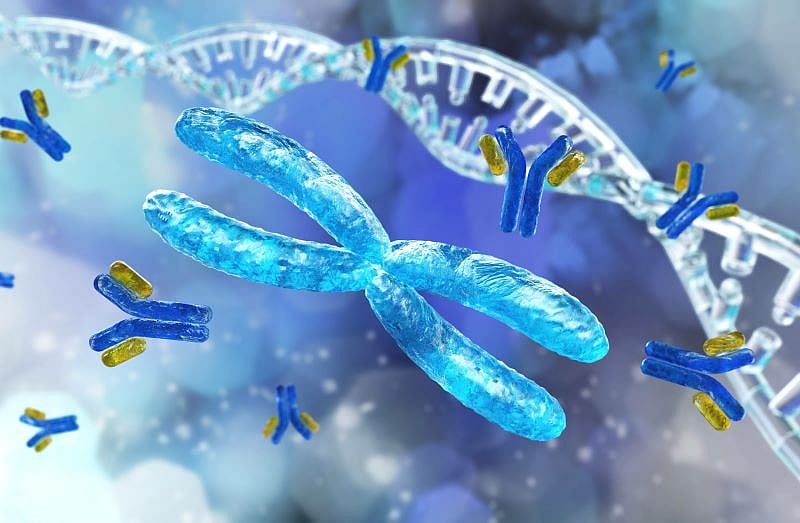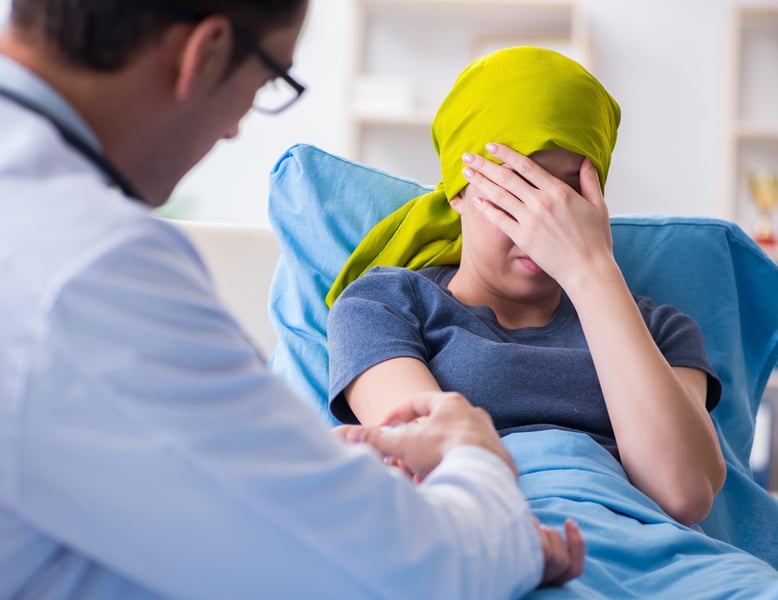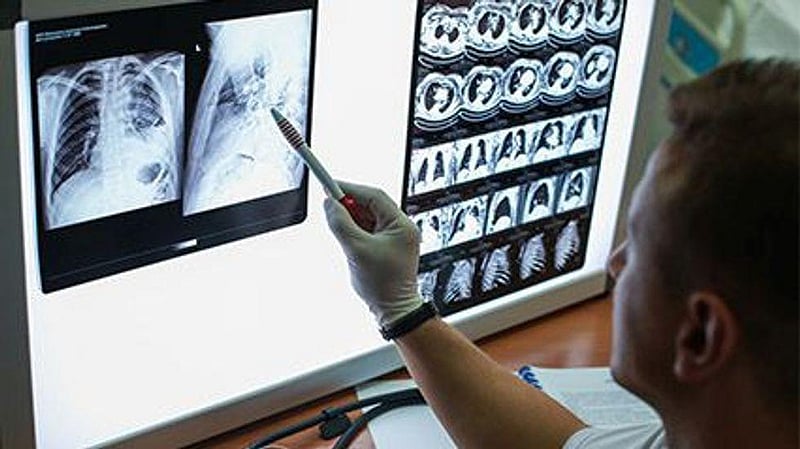Get Healthy!
Results for search "Cancer: Bladder".
14 Jul
Obesity-Related Cancer Deaths Tripled Over the Past Two Decades, Study Finds
Researchers discover steep increases in cancer deaths linked to obesity since 1999, especially among women, older adults and Black people.
30 May
GLP-1 Weight Loss Drugs May Lower the Risk for 14 Obesity-Related Cancers
A new study finds women taking GLP-1 Receptor agonists were significantly less likely to develop obesity-related cancers.
Health News Results - 17
A new implant eliminated bladder cancer in more than 4 out of 5 high-risk cases, new clinical trial results show.
The miniature pretzel-shaped device, dubbed TAR-200, slowly releases the chemotherapy drug gemcitabine into the bladder, resea...
- Dennis Thompson HealthDay Reporter
- |
- August 18, 2025
- |
- Full Page
University of Colorado football coach Deion Sanders says he is now cancer-free after an unexpected battle with bladder cancer. Now he’s encouraging others to take charge of their health.
Sanders, 57, spoke openly Monday at a
There's new hope for people battling advanced bladder cancer who do not respond to first-line therapy, researchers report.
An experimental new drug with the unwieldy name of cretostimogene grenadenorepvec spurred complete remission of the cancer in three-quarters of patients who hadn't responded to an immune-focused treatment typically used to fight the disease.
"These findings addr...
- HealthDay Reporter
- Ernie Mundell
- |
- December 6, 2024
- |
- Full Page
When given after organ-removal surgery, Keytruda brings patients battling advanced bladder cancers more time cancer-free, a new trial finds.
Folks with "high-risk" bladder cancers -- tumors that had already invaded nearby muscle -- doubled the time they were cancer-free after surgery if they got post-op Keytruda (pembrolizumab), compared t...
- HealthDay Reporter
- |
- September 18, 2024
- |
- Full Page
Britain's King Charles III is back to resuming his royal duties following treatment for cancer, Buckingham Palace announced Friday.
"His Majesty The King will shortly return to public-facing duties after a period of treatment and recuperation following his recent cancer diagnosis," the Palace said in a
A new urine test could spare bladder cancer survivors from a painful follow-up procedure needed to ensure their cancer hasn't come back, researchers report.
People who've gotten surgery for high-risk bladder cancer require a cystoscopy -- a procedure in which a flexible probe is inserted through the urethra into the bladder, allowing doctors to check for signs of recurring cancer.
"...
- HealthDay Reporter
- Dennis Thompson
- |
- April 8, 2024
- |
- Full Page
A cancer drug duo more than doubled the survival of people battling the most common form of advanced bladder cancer, trial results show.
Patients who took a combo of meds called EV+P -- enfortumab vedotin and pembrolizumab (Keytruda) -- had an average 31.5 months survival, compared to just over 16 months for those on standard chemotherapy, researchers reported March 7 in the
"Listen, I'm not a Pollyanna,"New Yorker David Cabelis makes clear. "I'm a cab driver."
"But I was diagnosed with this cancer,"the 72-year old said. "Bladder cancer, that's what I had, and then I had this treatment, and it was the most amazing experience. And thank God, now I'm clean, I'm cancer-free. So, if you're asking me about this treatment, I'll tell you one thing: I'm not objective...
- HealthDay Reporter
- Alan Mozes
- |
- October 10, 2023
- |
- Full Page
It's common knowledge that loss is a part of male aging -- loss of hair, loss of muscle tone, loss of vision or hearing.
But men growing older also start losing the very thing that makes them biological males, their Y chromosome, and that can leave them more vulnerable to cancer, a new study says.
The loss of the Y chromosome can help cancer cells evade detection by the body's immun...
- HealthDay Reporter
- Dennis Thompson
- |
- June 21, 2023
- |
- Full Page
For years, doctors have thought that a more extensive surgery that removes a wider swath of lymph nodes was the best option for certain patients with bladder cancer. Now, a new clinical trial is upending that belief.
Researchers found that the strategy -- known as extended lymphadenectomy -- was no better than standard surgery at prolonging patients' lives or the amount of time they live...
- HealthDay Reporter
- Amy Norton
- |
- June 7, 2023
- |
- Full Page
Patients with a high-risk bladder cancer now have a new option to treat it.
The U.S. Food and Drug Administration on Friday approved a gene therapy called Adstiladrin, which is designed to work for patients who have what's called high-risk non-muscle-invasive bladder cancer (NMIBC) that hasn't responded to the standard treatment, Bacillus Calmette-Guérin (BCG), but hasn't spread. BCG i...
- HealthDay Reporter
- Cara Murez
- |
- December 19, 2022
- |
- Full Page
The latest statistics from the U.S. National Cancer Institute (NCI) show a continuing decline in the number of Americans who die from cancer, although there's been little change in the number of new cancer cases.
"From 2015 to 2019, overall cancer death rates decreased by 2.1% per year in men and women combined," according to a statement issued by the NCI on Thursday.
The biggest d...
- HealthDay Reporter
- Ernie Mundell
- |
- October 27, 2022
- |
- Full Page
Football Hall of Famer Terry Bradshaw revealed Sunday that he has been treated for two different types of cancer in the past year.
Bradshaw talked about his health while co-hosting Fox NFL Sunday.
"Last week on th...
- HealthDay Reporter
- Cara Murez and Robin Foster
- |
- October 4, 2022
- |
- Full Page
Immunotherapy with nivolumab (Opdivo) after surgery for metastatic bladder cancer significantly reduces the odds for the tumor's return, a new clinical trial finds.
Among 700 patients with urothelial cancer of the bladder or other parts of urinary tract that had spread to musc...
- HealthDay Reporter
- Steven Reinberg
- |
- May 16, 2022
- |
- Full Page
The early months of the COVID-19 pandemic kept millions of Americans away from routine cancer screenings. Now a new study finds that many U.S. screening programs were still not back to normal by 2021.
The study, of more than 700 cancer facilities nationwide, found that in January 2021 - a year after COVID's emergence in the United States - most still had not recovered their pre-pandemic s...
- HealthDay Reporter
- |
- March 21, 2022
- |
- Full Page
New research offers fresh proof that the COVID-19 pandemic delayed cancer diagnoses in the United States, increasing patients' risk for poor outcomes.
For the study, researchers analyzed data from more than 9 million patients at over 1,200 Veterans Affairs (VA) medical facilities.
Procedures to diagnose cancer were used less often and there were fewer new cancer diagnoses in 2020 t...
- HealthDay Reporter
- Robert Preidt
- |
- December 6, 2021
- |
- Full Page
Private insurers paid out about $156.2 billion in 2018 for U.S. patients with the 15 most common cancers.
Medication was the largest expense and drugs for breast, lung, lymphoma and colon cancers accounted for the largest chunk of those costs, according to a Penn State College of Medicine study.
"The public often hears that the U.S. spends an inordinate amount of money on health car...
- HealthDay Reporter
- Robert Preidt
- |
- October 13, 2021
- |
- Full Page














